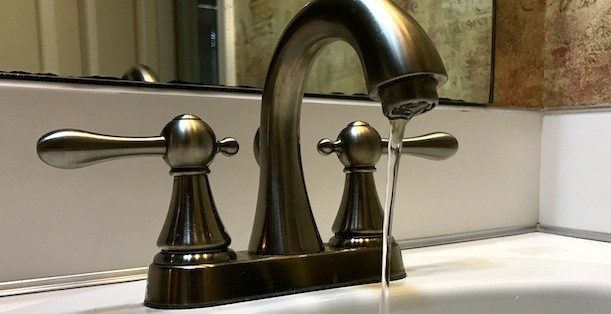Officials respond to complaints of higher Fort Smith water bills
by March 11, 2019 6:45 pm 2,899 views

Fort Smith water bills might be higher since new meters were installed, but that’s because usage is now being properly read, city officials say.
Prior to new water meters being installed, beginning in 2017, on average, 85% of water passing through the meters was recorded, said Carl Geffken, Fort Smith city administrator. The new meters are reading all the water going through the meters, according to Deputy Director of Services Jimmie Johnson.
This can make a change in a customer’s water bill in that the full amount of water they are using is now being reported, Geffken said.
Two residents addressed the city’s Board of Directors during a town hall meeting following the regular board meeting March 5, saying the new meters installed by the city were either inaccurately reading water usage or had caused leaks that were reflected on their utility statements. City personnel refuted those claims.
The 15% of undocumented water now being documented and charged for could result in a higher bill for some users whose water usage was not being properly documented, Geffken said.
Higher water bills are not the result of a rate increase. The last water rate increase was in 2011 and the last sewer rate increase was in 2017, Geffken said. The new meters that properly record the amount of water being used by residential customers is helping the city. Now water isn’t being distributed without city reimbursement.
Some of the city’s water meters have not been replaced in 40 years, Geffken said. Meters have an about a 10 year life expectancy, Johnson said. Beginning in 2017, the city started replacing all residential meters in the city. About 23,000 meters have been replaced so far. The remaining approximate 13,000 will be replaced by the end of the year.
“The idea is that we will then start a system that allows for gradual replacement and hopefully all meters will be replaced within 10 to 12 years,” Geffken said.
Though the new meters mean the city will run its water system more efficiently, city officials understand that higher water bills are not popular. According to Geffken, there are basically three reasons for a higher bill:
• There is a leak;
• More accurate reading shows there is greater water usage than what was originally being reported; and
• The billing period changed.
Some bills in December were for 28 to 30 days or even less, while due to a new billing system, some bills for January jumped to 44 days
“We do understand it is frustrating. We do understand the course of transferring over to a new system has been trying for some of our customers,” Geffken said.
The city is trying to help alleviate some of these pains in a couple of ways. The city has replaced new meters if a customer believes their newly installed meter is the cause of the bill increase and has requested it to be changed. To date, 20 new meters have been installed. None of those meters have been shown to be defected or not reading properly, Johnson said. However, one meter did have debris in it, which was affecting the reading process, and one meter was installed backward, which thus showed extreme usage at that site.
A 5/8” meter, which the new meters are, cost $67 and the electronic Read Transmitter (ERT) used with each new meter cost $64, Johnson said. No customer has been responsible for that cost even if they ask for the meter to be replaced, he added.
The city also will adjust a bill if a leak is found on the customer’s side of the meter. If a customer brings in a receipt for parts used to fix a leak or from a plumber who fixed the leak, the city will look back at records to determine the days the leak was shown and adjust the bill for that period, Johnson said. This has been a long standing city policy with respect to water leaks, he added.
